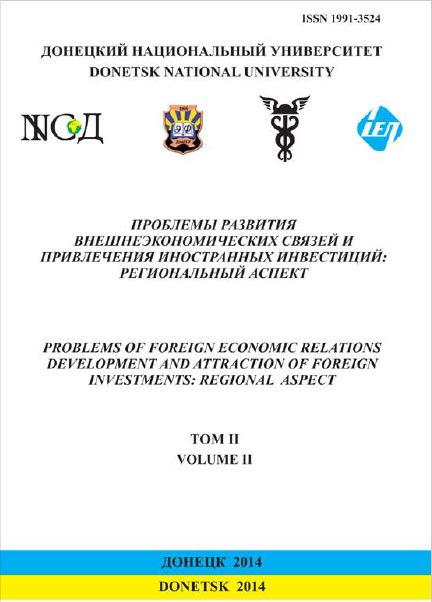Виникнення пост-помаранчевої моделі економічного розвитку в Україні?
Ключові слова:
модель розвитку, Вашингтонський консенсус, жорстка економія, розвиваюча держава, Україна, Європейський союз, РосіяАнотація
У статті аналізується особливості появи пост- помаранчевої моделі економічного розвитку в Україні, після того, як світова фінансова криза перебалансувала політичні сили в Україні. У результаті чого «помаранчеві » партії, які були прихильниками прозахідної політики « Вашингтонського консенсусу» змінилися «біло-блакитними» силами на чолі з Партією регіонів, яка представляє національний капітал і виступаює за прийняття більш конструктивних відносин з Росією. У статті стверджується , що швидше за все шлях розвитку України так і залишиться залежним від суперечливого геополітичного положення, де Захід і Росія конкурують одна з іншою за вплив. У статті робиться висновок, що по-перше, фіскальна консолідація і перерозподіл потрібні для створення або підприємницького або розвивальної держави, а по-друге, в той час як емоції і «м'яка сила» тягне Україну на Захід , прагматичний розрахунок сигналізує про необхідність хороших відносин з Євразією так само.Посилання
Bojcun, M. (2011b). "The international economic crisis and the 2010 presidential elections in Ukraine." Journal of Communist and Transition Politics 27(3-4): 496-519
Connolly, R. and N. Copsey (2011). "The great slump of 2008-9 and Ukraine's integration with the European Union." Journal of Communist and Transition Politics 27(3-4): 541-565.
Dragneva, R. and K. Wolczuk (2012). Russia, the Eurasian Customs Union and the EU: Cooperation, stagnation or rivalry? Briefing Paper. London, Chatham House. http://www.chathamhouse.org/sites/default/files/public/Research/Russia%20and%20Eurasia/0812bp_dragnevawolczuk.pdf 30/10/12
Eurasian Development Bank (2012). Ukraine and the Customs Union: Comprehensive assessment of the macroeconomic effects of various forms of deep economic integration of Ukraine and the member states of the Customs Union and Common Economic Space. St Petersburg, Eurasian Development Bank.
http://www.eabr.org/general/upload/reports/Ukraina_doklad_eng.pdf 30/10/12
Government of Ukraine (2010). Prosperous society, competitive economy, effective state. Kyiv, Government of Ukraine. http://www.usubc.org/site/files/Ukraine_Program_of_Economic_Reforms_2010-2014.pdf [unofficial translation] 26/10/12
IMF (2010). Request for Stand-By Arrangement and Cancellation of Current Arrangement. Washington DC, IMF. http://www.imf.org/external/pubs/ft/scr/2010/cr10262.pdf 29/10/12
Kholod, N. (2012). Reforming the Ukrainian economy under Yanukovych: The first two years. Washington DC, Carnegie Endowment for International Peace. http://carnegieendowment.org/2012/04/02/reforming-ukrainian-economy-under-yanukovych-first-two-years/a63h# 24/10/12
Mykhnenko, V. and A. Swain (2010). "Ukraine’s diverging space-economy: The Orange Revolution, Post-Soviet development models and regional trajectories." European Urban and Regional Studies 17(2): 141-165.
Sadowski, R. (2012). The prospects for the EU-Ukraine free trade agreement. Warsaw, Centre for Eastern Studies.
Varga, M. (2012). "'Working class heresies': Ideology in protests of Ukrainian workers during the world economic crisis." Mimeo.
World Bank (2010). Ukraine country economic memorandum: Strategic choices to accelerate and sustain growth. Washington DC, World Bank.

